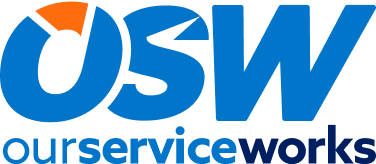An accurate, robust, and highly functioning fulfillment strategy results in positive reviews and happy customers. On the other hand, a fulfillment process filled with mis-shipments, late product arrivals, and poor customer service will not only tarnish your online reputation but could also result in the failure of your business venture altogether. The stakes are extremely high, and customers’ expectations have blossomed to a level requiring near-flawless execution and lightning-quick delivery times. This is why e-commerce businesses today need to be able to hire a top eCommerce fulfillment company if they wish to outsource the process.
But what exactly is e-commerce fulfillment, and what are the steps involved? Can you do it yourself, or should you outsource it to an eCommerce fulfillment provider? How do you select from the top e-commerce fulfillment companies? Read on to learn more as this post answers all the above questions.
What is eCommerce Fulfillment, and What Steps Are Involved?
E-commerce fulfillment refers to the entire process of delivering products to buyers after they order them online—whether the purchase takes place on your own website or an online marketplace. From receiving and storing inventory to processing orders, picking products, packing boxes, and delivering items to the buyer’s addresses, e-commerce fulfillment spans the entire logistics function.
The eCommerce fulfillment process has six basic components, including:
- Receiving products in your warehouse
- Managing inventory
- Fulfilling and shipping orders
- Processing returns
- Supporting customers throughout the process
- Integrating order platforms with inventory and fulfillment systems
Receiving and inventory management are critical steps in the e-commerce fulfillment process. Receiving involves counting all incoming products and verifying whether they match your inbound purchase order (PO), and ensuring that inventory is safe, secure, and properly accounted for until fulfilled and shipped. If counts are incorrect at this stage in the game, inventory counts will be inaccurate and can lead to unexpected stockouts.
Inventory is safeguarded by strict controls over receiving and fulfillment, as well as periodically performing cycle and/or yearly counts to ensure accuracy. Most e-commerce fulfillment companies will also have an inventory management system that allows you to always check your inventory levels.
As orders are placed on your e-commerce channels, warehouse staff must then pick them, pack them, and ship them. Modern warehouses utilize technology to pick the orders without error, including bar code scanning and other technologies. E-commerce orders are usually smaller in nature, consisting of only one item or a few items total.
However, the process isn’t complete once your customer receives his or her order. E-commerce fulfillment strategies must also account for return processing and servicing customers’ questions, requests, and complaints.
What Integrations Are Needed?
To successfully compete in the hotly contested online sales marketplace, fulfillment warehouses must employ robust technology. Your e-commerce store must integrate flawlessly with your fulfillment center, whether in-house or outsourced. That is, orders should reach the people who pack and ship items seamlessly and without manual intervention. Similarly, integrations should be used for all online platforms on which you sell – not just your own website.
Your fulfillment warehouse should utilize one of the following methods for sending orders from the web store (or other marketplaces online) to your warehouse staff:
- Web services
- APIs
- CSV or FTP uploads
In a similar fashion, shipping tracking information must be relayed back to your customers, and your stock levels and inventory must be trackable. Most companies utilize an inventory and order management system to meet these demands. Outsourced fulfillment providers have robust warehouse management systems (WMS) that they utilize, and they offer the ability to ‘link’ to their WMS seamlessly using a technology integration.
Different Options for Fulfilling eCommerce Orders
There are several options you can utilize to manage your fulfillment function. You can handle the e-commerce fulfillment service by yourself (commonly called “in-house fulfillment”), utilize a drop shipping service, or outsource the entire fulfillment service to a third-party fulfillment company. Outsourcing is a popular choice since it makes your business agile and helps reduce expense and risk. You can contract or expand your warehouse space with outsourced fulfillment depending on your business demands.
Drop Shipping
Drop shipping is ideally suited for a startup company that wants to minimize risks. Under a drop shipping model, the product producer or supplier handles the fulfillment and shipping of orders from their facility, usually on an order-by-order basis. In other words, when an order is placed for your product, the order information is routed to the drop shipper (supplier), who then ships that order directly to your customer.
With the drop-shipping model, you aren’t required to purchase a bulk of products upfront. Instead, the drop shipper simply charges you a price per unit for the product itself and all the fulfillment and shipping-related charges. With no up-front investment required for inventory, you can instead invest money in other areas of the business. Furthermore, the drop shipper handles all the fulfillment, so you don’t have to. You can sit back and let the manufacturer handle the entire fulfillment process. Drop shipping is especially useful for testing out products before a full-scale launch.
Alternatively, there are some downsides to using a drop shipper. First and foremost, drop shippers are usually experts in manufacturing products but aren’t necessarily the best at delivering high-quality fulfillment and shipping services. Therefore, you may experience issues such as late shipments. Second, in exchange for the ability to purchase a product on a one-off basis, you will pay a much higher cost per unit for the product. For example, your product for a single unit of the product will be much higher than if you negotiated a lower price for a larger set of goods from the supplier (commonly referred to as “bulk pricing”).
Unfortunately, with drop shipping you’ll lack control over the fulfillment process, shipping, and handling of the products. Other disadvantages of drop shipping include lower profit margins, shorter lead times, and lack of bulk pricing.
Self-Fulfillment
In self-fulfillment, your business conducts the order fulfillment process through its own labor, assets, and facilities and without assistance from a third-party fulfillment company. Whether conducted out of an apartment, home, garage, or full-fledged warehouse, in-house fulfillment requires a space to store and fulfill orders, minimal inventory and shipping software to support operations, and labor to perform the necessary tasks. In cases of bootstrapping, oftentimes, founders will do all of the shipping and fulfillment until they can afford to outsource logistics operations.
The self-fulfillment strategy is easy to implement, gives you control over the whole fulfillment process, and has lower startup costs (especially since you don’t necessarily have to pay yourself a wage). However, it has some major challenges and limitations.
The biggest problem with using an in-house fulfillment strategy is that it forces you to invest an enormous amount of time in fulfillment and shipping functions rather than other potentially more important functions such as product design, sales, and marketing services. In addition, in-house fulfillment carries with it the following potential problems:
- Entering a leased space and the risks and fixed costs associated with taking on a long-term lease.
- Managing warehouse and shipping staff
- Lacking the necessary knowledge to avoid fulfillment and logistics issues
Fulfillment Center
Outsourcing your operations to a fulfillment center is a great model that requires supply chain management. Third-party logistics (3PL companies) manage various supply chain functions on your behalf so that you can focus on your core business functions.
Outsourced fulfillment services include:
- Freight forwarding (managing incoming shipments from your supplier to the warehouse)
- Receiving products into the warehouse (counting them, verifying the accuracy of quantities and quality of products, loading them into their online system, and physically placing them in their warehouse in racks and bins)
- Inventory storage and management
- Pick and packing of orders
- Shipping orders
This model suits e-commerce retailers who do not have the resources to handle the inventory by themselves or who would rather not deal with the rigors of the fulfillment process. It frees up time and resources and enables your staff to concentrate on other things such as business development and marketing. Furthermore, fulfillment centers will help you achieve cost savings by:
- Changing fixed leased costs into variable costs where you only pay for what you use
- Lower other fulfillment and shipping costs such as packaging and boxes, labor, and technology costs
Furthermore, you can benefit from the data insights, shipping network, value-added tools, and industry expertise of eCommerce fulfillment companies. Because fulfilling orders is the lifeblood of their business, they are experts at what they do. In short, it is like having an expert in-house fulfillment team without the associated costs and headache of managing it yourself.
Partnering with one of the top e-commerce fulfillment companies has multiple advantages, including ease of scaling, increased buying power, and reduced operating costs while leveraging industry expertise.
What are the Costs of Outsourcing to a Top eCommerce Fulfillment Company?
Fulfillment costs depend on the fulfillment provider you choose and their pricing model. Every fulfillment provider differs slightly in how they charge, but most utilize an activity-based costs methodology where they charge a fee for every service they perform for you.
Generally, you can determine the total fulfillment costs by adding up all the expenses of a fulfillment process. These include:
- Warehouse Receiving
- Storing and managing inventory
- Warehouse picking and packing
- Standard or custom packaging
- Shipping
- Return management and processing
For more information on the specifics of fulfillment pricing, download our free fulfillment pricing resource.
Choosing one of the Top E-commerce Fulfillment Companies
There is a wealth of eCommerce fulfillment companies, so finding the best 3pl for your eCommerce company can be challenging. Below are some of the factors to consider when choosing a fulfillment partner.
Order Fulfillment Technology
As an eCommerce entrepreneur, you already have a lot on your hands. You are using different applications, platforms, and digital tools throughout your daily operations, so the last thing you would want to do is partner with a fulfillment firm that uses outdated software. Therefore, you should research the fulfillment software a company you are thinking of working with uses.
Shipping Speeds and Fulfillment & Inventory Accuracy
Customers can abandon an online purchase due to slow delivery times. For this reason, you need to choose a fulfillment company with efficient and effective processes that enable your products to reach customers quickly.
Furthermore, if a package arrives early or on time but doesn’t have the right items, all of the goodwill built with the customer can evaporate quickly. Mistakes will happen occasionally with an outsourced fulfillment provider, but the best fulfillment companies operate with a minimum accepted fulfillment and inventory error rate, and many will back up their quality with a pledge to compensate you if they do make a mistake.
Returns Management
Returns are inevitable in the e-commerce industry. In fact, the eCommerce product return rate stands at around 30% of all items. With such a rate, you don’t want a partner who will be hands-off after shipping the product. Although some of the returns are unavoidable, you want to work with a fulfillment company that commits to mitigating controllable returns.
Customer Service and Reviews
When looking at outsourced fulfillment options for your e-commerce store, searching for companies with good Google reviews is critical. Also, obtaining references is helpful.
Finally, one of the most overlooked items in fulfillment services selection is ensuring the partner has some form of customer service—both for your questions and for answering your customers’ questions. Most fulfillment companies do not offer in-house customer care divisions, which is unfortunate and could negatively impact customer satisfaction.
Why Choose OSW eCommerce Fulfillment?
Efficient eCommerce fulfillment sets your business up for growth, and proper packaging and fast shipment improve your customers’ experience, encouraging more purchases and online referrals. Luckily, that is exactly what Our Service Works (OSW) provides your business. We are an experienced fulfillment provider with over thirty years in the industry.
Our top-notch order fulfillment software transforms the handling of your fulfillment to meet the needs of today’s online retail. You can rest assured of reliable shipping, unmatched flexibility, dynamic integration, full visibility of the entire fulfillment process, and customized packaging. Contact us today for all your warehousing, fulfillment, and shipping services.







